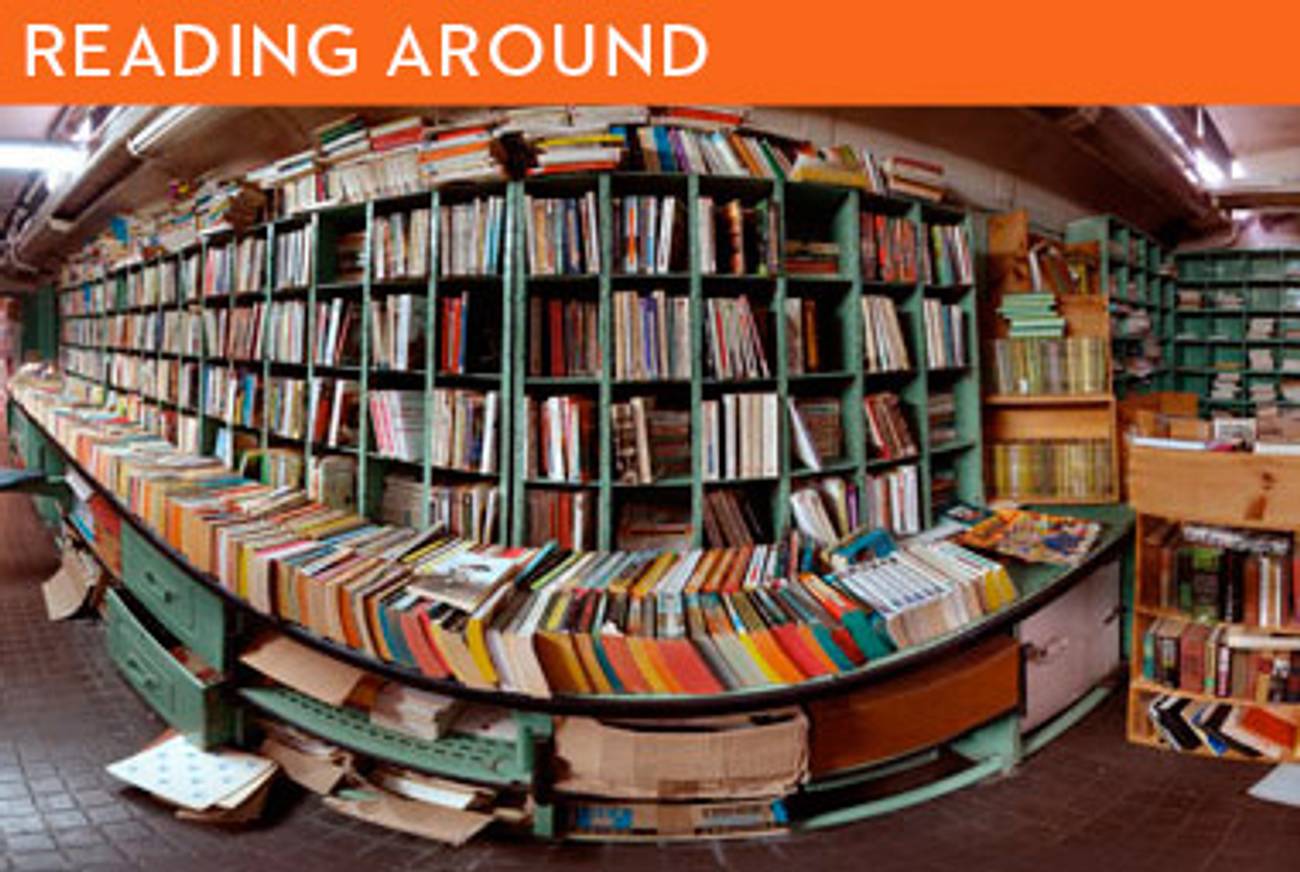On the Bookshelf
Summertime retreats and marital defeats




For the fortunate and fancy, Memorial Day weekend means the Hamptons. Those of us without beach houses can read about such folks in Dan Rattiner’s In the Hamptons Too: Further Encounters with Farmers, Fishermen, Artists, Billionaires, and Celebrities (SUNY, May). The founder and editor of the local rag Dan’s Papers, Rattiner watched the area develop after moving to Montauk with his parents in 1956. “We were the first Jewish residents,” he recalls, and he also remembers being told—long before the establishment of Chabad of East Hampton—that he wouldn’t be admitted to a Bridgehampton golf club because of his religion. As in his first collection, 2008’s In the Hamptons, here Rattiner intersperses bits of memoir with tales of regular locals as well as gossipy recollections of run-ins with Norman Mailer, Betty Friedan, and Steven Spielberg.
***
Nancy Bachrach’s The Center of the Universe (Knopf, April) begins with a disaster off the coast of that other quintessential Memorial Day destination, Martha’s Vineyard. In 1983, Bachrach’s father’s shoddy job rewiring his boat (quoth one relative: “I never trusted him. Jewish men aren’t handy”) causes a leak of poisonous gas that kills him and severely damages Bachrach’s mother’s brain. The memoir follows the author, an ad executive, as she returns to the United States from France to care for her surviving parent, a bipolar but indefatigable woman who was also the granddaughter of a Rhode Island rabbi arrested in the 1920s for bootlegging.
***
Of course, some families have more pressing business than reservations at Nick and Toni’s or a weekend on the Cape. Mary-Kay Wilmers’s relatives, for example, whom she describes in The Eitingons: A Twentieth-Century Story (Verso, May): Over the course of the 20th century, various members of this unruly Jewish clan perpetrated assassinations on Stalin’s behalf, earned fortunes buying and selling Russian furs, and bankrolled the spread of Freudianism to Berlin and Jerusalem. Leonid Eitingon, the most astonishing of these figures, arranged Trotsky’s murder and hoodwinked the Japanese into purging 20 of their own secret agents. Wilmers, editor of the London Review of Books, has inherited at least a little of the double-agent mentality of her fascinating Soviet relation: Claiming that she, as a Jew, has “a particular right to speak out” about Israeli abuses, she has declared herself “unambiguously hostile to Israel.”
***
Julie Metz’s husband, Henry, turned out to have been a different sort of double-agent: after his fatal heart attack in 2003, Metz discovered that Henry had been cheating on her with other women, including one of her close friends, for years. Newly released in paperback, Metz’s 2009 bestseller Perfection: A Memoir of Betrayal and Renewal (Hyperion, May) relates her attempts to uncover the infidelity and to cope with the loss of first her spouse and then her faith in him. A graphic designer “of vaguely Jewish upbringing,” Metz is not too proud to admit imagining, momentarily, in her anger, “that Henry had been struck down by the Big Guy himself, flattened onto the kitchen floor by the strong hand and mighty arm I remembered from all those Passover dinners.”
***
In literary fiction, Israel has served as a primary site and source of conflict between religious and secular American Jews at least since the mid-1980s, with key texts in this ever-expanding tradition including Anne Roiphe’s Lovingkindness (1987) and Philip Roth’s The Counterlife (1986) and Operation: Shylock (1993). Jacob Paul’s debut novel Sarah/Sara (Ig, May) centers on a young ba’alat teshuva kayaking across the Arctic, far removed from any khamsin or hummus, but the inspiration for her bleak journey is the murder of her secular parents in a terrorist bombing while they are visiting her, reluctantly, in the Holy Land. Fateful and violent encounters in Jerusalem likewise drive the plot of Joan Leegant’s Wherever You Go (Norton, July). Leegant’s first novel, following the award-winning collection of short storiesAn Hour in Paradise, the book features three wayward Americans in Israel: a woman hoping to reconcile with her zealous settler sister; a ba’al teshuva Talmud instructor who realizes his faith has lately been faltering; and the shlemiel son of a bestselling Holocaust novelist. Don’t expect it to end peacefully: As Leegant explains, her interest in these characters and this locale is that they allow her to ask, “What draws otherwise rational people to commit extremist acts, violent acts, to justify violence?”
***
Introductions to Judaism differ from one another as much as individual Jews themselves do. The Cambridge Guide to Jewish History, Religion, and Culture (Cambridge, July), edited by scholars Judith Baskin and Kenneth Seeskin, surveys Jewish experiences throughout history and the varieties of Jewish religion and cultural expression, emphasizing the interplay between intellectual elites and the hoi polloi in the development of Judaism. Shmuley Boteach’s Renewal: A Guide to the Values-Filled Life (Basic, May), on the other hand, takes a more aggressive tack: “Forget the tragically mistaken notion that Judaism is only for Jews,” Boteach fulminates. In full guru mode, he draws at least as much on the American traditions of self-help hucksterism and on religious evangelism as he does on rabbinic precedents: Offering up Judaism as a solution to a grab-bag of contemporary woes, he calls the religion “a holistic set of inextricably linked values that together compose a state-of-the-art system for maximizing human potential.” And it can be yours—if you order right now—for the low, low price of just $22.00!
Josh Lambert (@joshnlambert), a Tablet Magazine contributing editor and comedy columnist, is the academic director of the Yiddish Book Center, Visiting Assistant Professor of English at the University of Massachusetts, Amherst, and author most recently of Unclean Lips: Obscenity, Jews, and American Culture.
Josh Lambert (@joshnlambert), a Tablet Magazine contributing editor and comedy columnist, is the academic director of the Yiddish Book Center, Visiting Assistant Professor of English at the University of Massachusetts, Amherst, and author most recently ofUnclean Lips: Obscenity, Jews, and American Culture.